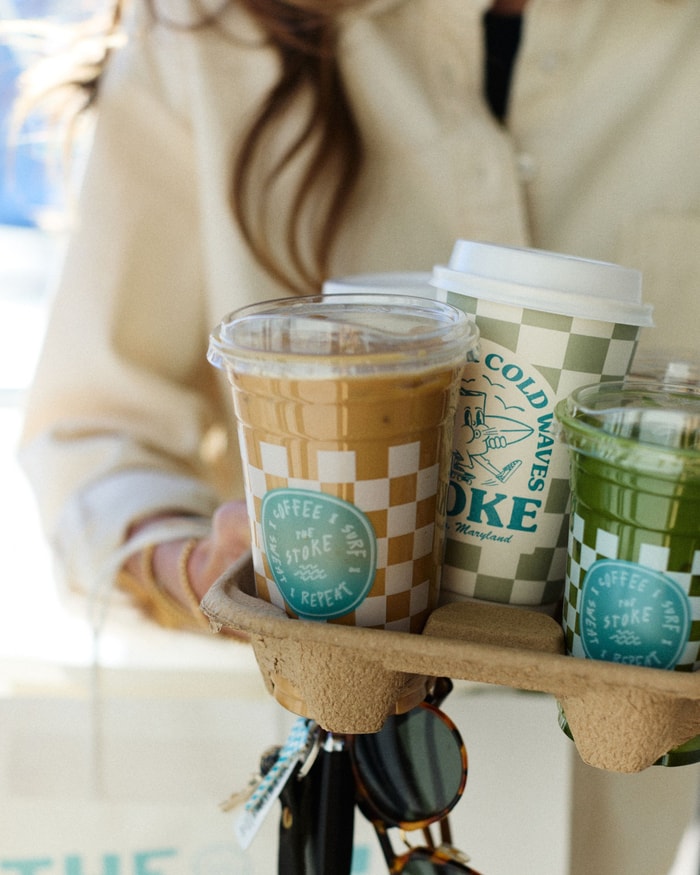
Pack Savvy: Small Business Stories That Stick
In honour of Small Business Month, noissue spotlights six businesses with staying power. From unconventional origins to quirky design choices, these companies stand as a testament to the quiet power of acting with intention.
By noissue — 12 May, 2025
Brands with staying power sell more than a product. They craft a moment, an emotional memory, and a sense of belonging. “People will never forget how you made them feel,” said American poet Maya Angelou of individuals, but the same is true of the brands we love. It's why a baseball cap from that New York deli you visited in 2005 still sits on your shelf, pulling you right back to that very first bite of an NYC cream cheese bagel.
Whether it's a coffee shop tucked down a cobbled lane or a design store flooded with artisanal treasures, there’s a magic in discovering a corner of the world, seemingly made with you in mind. These are the businesses where design decisions are deliberate, material choices integral to the company’s ethos, and everything — right down to the smallest detail — feels considered.
The Center of Order and Experimentation
Arriving at the till in this store is like stepping into a time machine, and being transported back to a 1960s US post office, with hints of Bauhaus. Turnaround, and 1980s aesthetics unfurl before you. It's campy and fun. Welcome to The Center of Order and Experimentation, a Chicago-based stationery and coffee store.
The Center is “designed to create community and uplift independent makers by purveying curious objects of exceptional utility”, says artist and owner Jean Cate. It’s a multifaceted operation with an event space that also serves as a hub for locals, artists and curators.
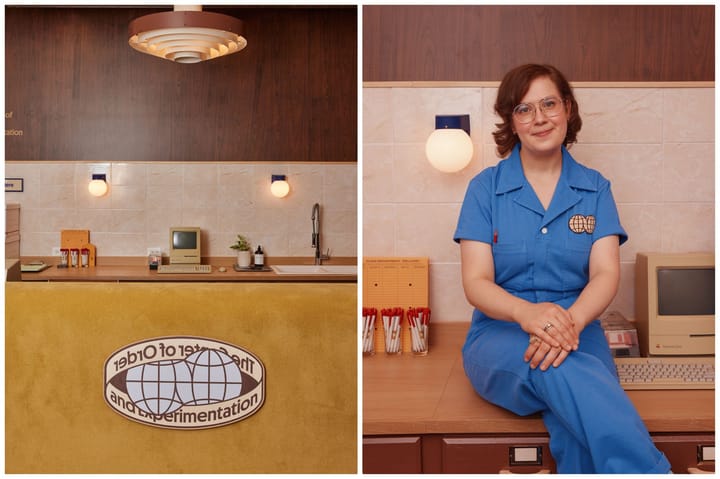
Cate had previously been running Martha Mae, a successful stationery and art supplies store in Chicago’s West Town for eight years. When Covid hit, she transferred that business online but soon felt like something was missing.
“I missed connecting with people in person and wanted to use The Center to build community, celebrate good design and create positive experiences,” says Cate. So, she decided it was time to expand her retail vision by opening The Center, her second business.
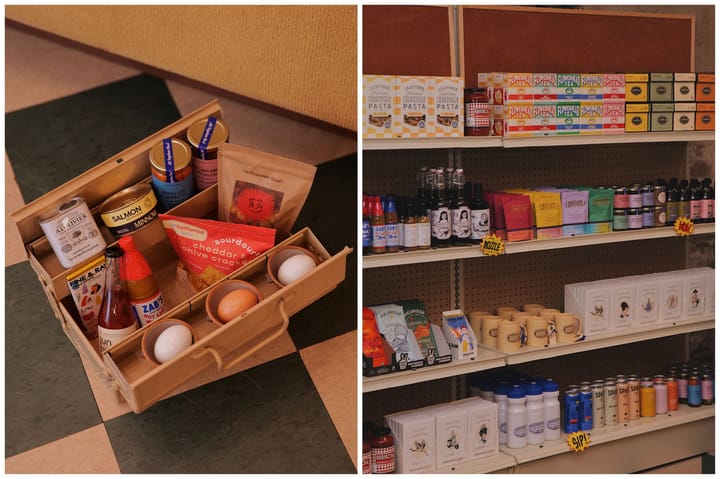
The Center goes against the grain of modern aesthetics by offering quirky goods that instantly draw attention. If you step inside for a coffee, you might find yourself leaving with a patterned wood chopping board or some artisanal kimchi. Such is the eclectic range of products on display.
Cate’s advice to other shop owners: “Building a shop is like building your own world. Don’t be afraid to explore your creativity and create a brand and business that speaks to you.”
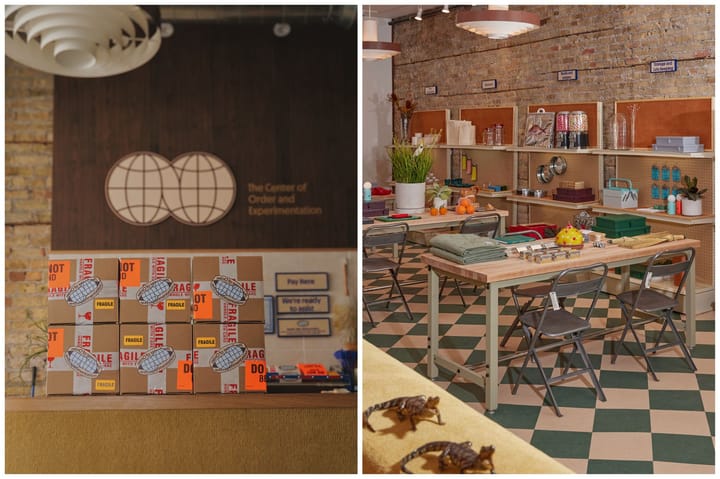
Taku Sando
Chef and restaurateur Hisashi Murakami opened his sandwich shop, Taku Sando, in Brooklyn’s Greenpoint back in 2023. His dream was to fuse Japanese flavors with American style. “We started Taku Sando to connect the flavors I grew up with in Japan and the creativity I’ve lived with for over 20 years in New York — through the form of a sandwich,” says Murakami.
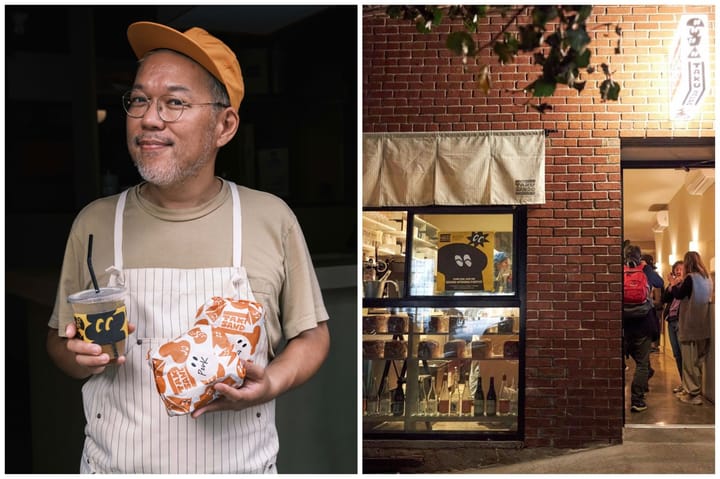
Freshly baked in-house every day, ‘shokupan’ is the star of the show at Taku Sando. Shokupan literally translates from Japanese as ‘staple food bread’ — it's a milk bread known for its fluffy texture and slightly sweet flavor.
Its fusion of Japanese food in an American setting is constantly evolving. “Since opening in Greenpoint, we’ve constantly refined our brand and signature menu items through ongoing conversations with customers,” says Murakami. By including customers in this way, they tend to feel like a part of the business, which, of course, they are.
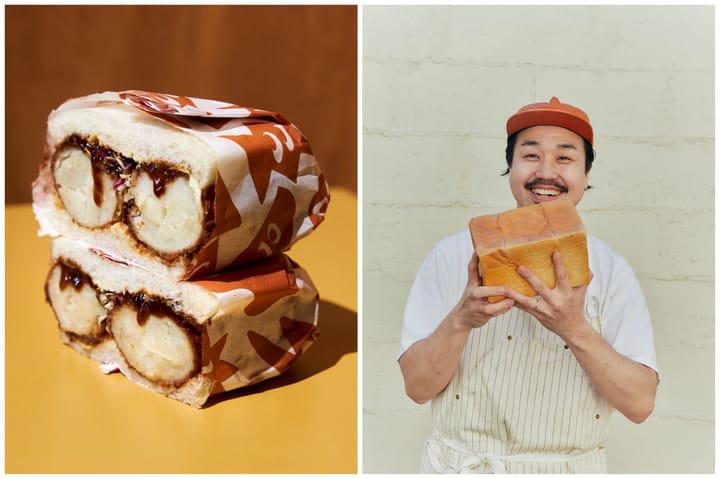
This business model – building a restaurant around the customers that frequent it – was so successful in Brooklyn that Taku Sando was able to open its second brand in Murakami’s native Japan. Although the Kyoto location was new, the method was the same. “We walked the neighborhoods, talked with local producers, and rebuilt the vision for what Taku Sando should be in Kyoto,” Murakami says.
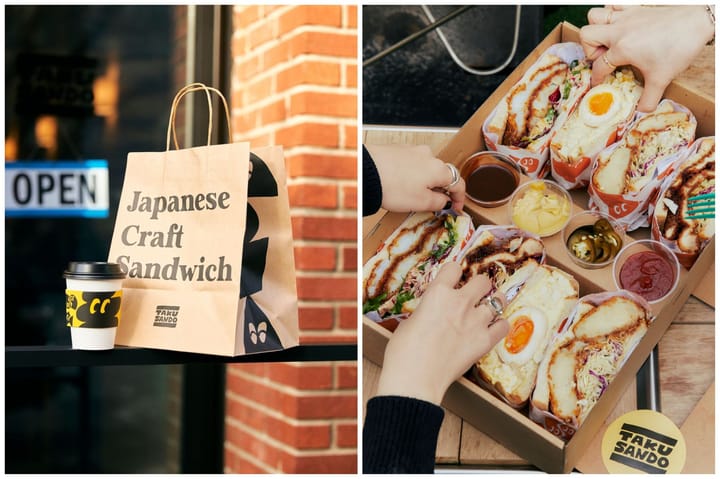
The red brick shopfront of Taku Sando in Greenpoint is most certainly Brooklyn. But once inside you are met with a bright and open space that could easily be mistaken for its sister café in Kyoto. “Having a consistent brand keeps us grounded and helps people trust and connect with what we do,” Murakami says. This means a fan in Brooklyn is a fan in Japan.
Special Studio
This New Zealand homeware brand has been turning trash into treasure since 2021. Its quirky designs range from spiralling sculptures to faux-rock plinths that appear as if carved from the marble cliffs of Carrara in Tuscany, Italy. But each product is in fact moulded from 100% recycled plastic and fed into huge 3D printers.
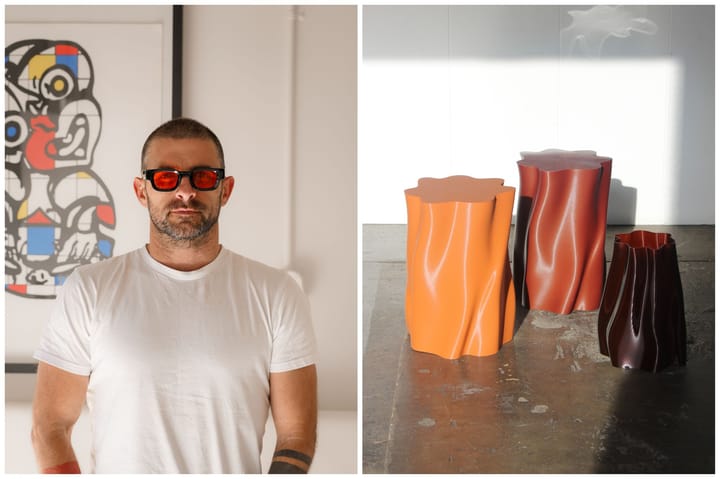
That plastic waste is locally sourced from close to Mount-Maunganui, where the company is headquartered on New Zealand’s North Island. For Special Studio, the goal is clear: to create ingenious designs by using a cyclical mode of production. “We produce all of our products using recycled plastics and have the ability to recycle all of our own products in-house when required,” founder Matt Watkins says.
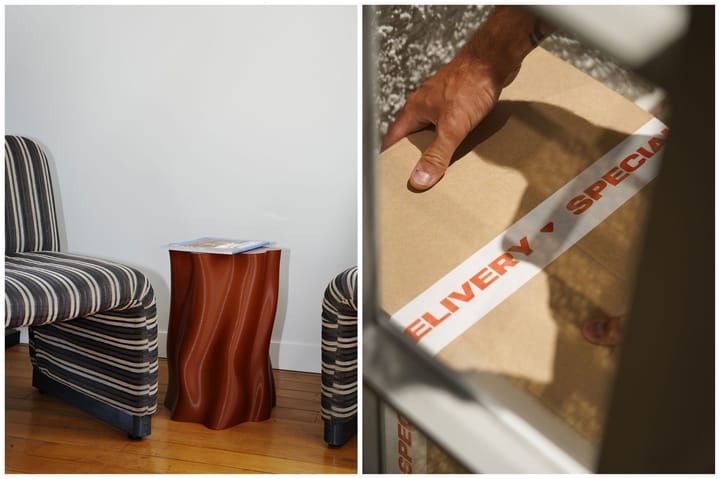
If a certain design does not work out, it’s not wasted; Special Studio has the chance to begin again. This is a godsend because, “making physical products is significantly more demanding than creating digital assets,” Watkins says, “It's costly, takes time and often multiple iterations and failures before settling on solutions that work.”
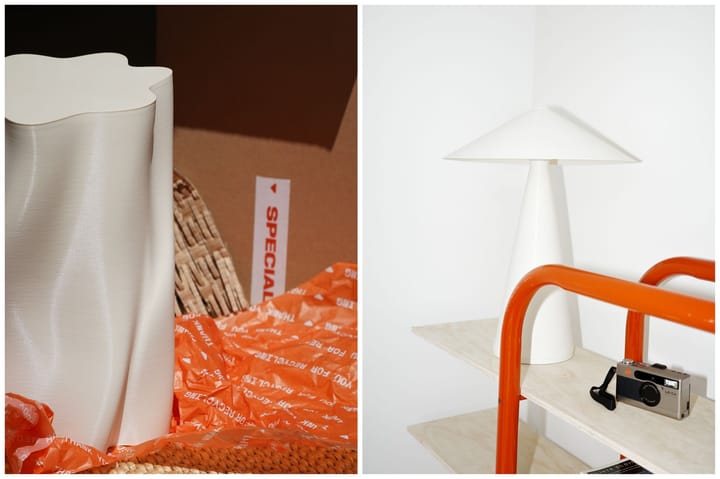
The brand’s commitment to sustainability extends into everything it does, including its packaging. Its instantly recognisable orange tissue paper and water-based tape reinforce the brand's focus on cyclicality and ethical responsibility. Once unwrapped, Special Studio’s pieces are certain to become a talking point of any modern home.
The Stoke
Couple Molly and Brendan Wagner were born and raised in Ocean City but wanted to turn their travels abroad into something they could savor back home in Maryland. So they started The Stoke Cafe in 2024, “a one-stop shop where you can move your body, sip a great coffee, grab a protein-packed bite,” says Molly.

Think rolling waves, crisp salty air, driftwood, and a lifestyle far removed from the humdrum of city life. There’s a gym on site hosting pilates and other classes. But The Stoke Cafe is also where East Coasters head for downtime; it’s a social space to chill out in.
The mission has always been the same — “build a happy, healthy community that feels like home,” says Molly. It's still early days, but The Stoke is beginning to cement its place in Ocean City. “Nothing ever goes exactly to plan, so learning to stay flexible and ride the waves has been key. I’ve found that growth comes from rolling with it,” says Molly.
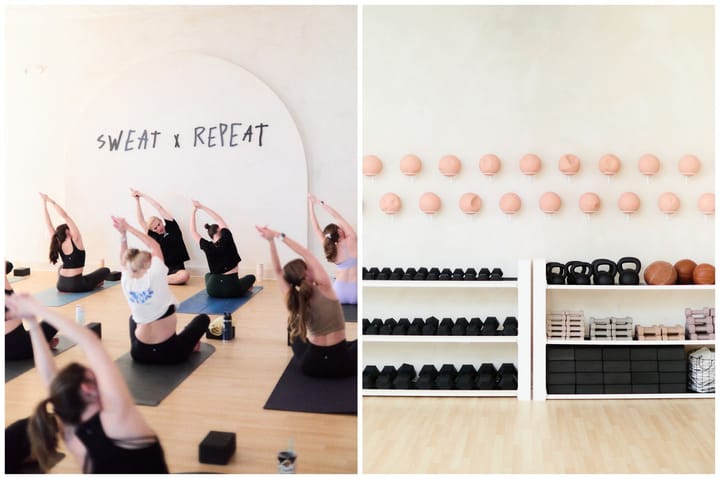
Through its fresh designs, The Stoke has been channeling an energy that locals want to be a part of. A cooling ocean blue adorns the space and its playful coffee cup graphics, serving as the perfect complement to the nearby Atlantic coast.
This carefully curated aesthetic has helped it travel beyond the shores of Maryland. “People snap pics, post on social, and tag us, and that kind of organic buzz helps us reach new people all the time. It’s marketing that feels natural,” Molly says.
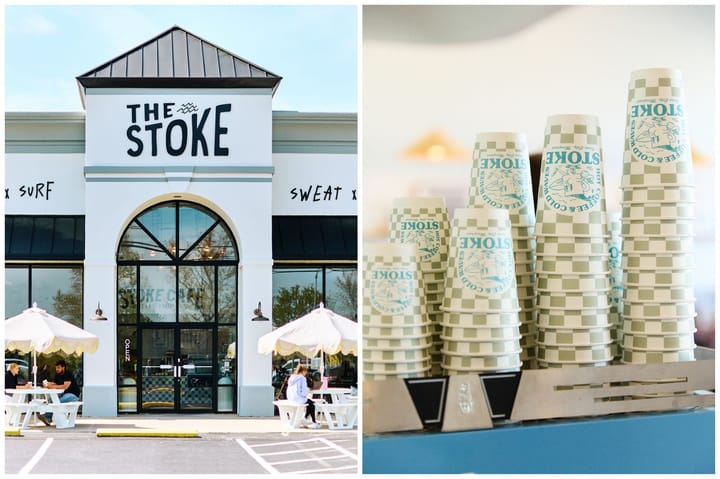
Aldea Coffee
This Michigan-based coffee shop, Aldea Coffee, is committed to bettering the lives of Honduran coffee farmers. Aldea means ‘community’ in Spanish, and this has been a pillarstone of the brand since its early days as a non-profit. First started in 2009, “the core of the team has been working together for almost ten years,” Aldea Coffee says. Once new hires understand Aldea’s mission, they tend to want to stick around.
And, after a decade of working together teamwork comes naturally. This means the daily challenges that are a reality in small business life become more manageable because of the team’s longevity – “It makes forgiveness a little easier during the hard times,” co-founder Andrew Boyd says.

Coffee shops that take social enterprise seriously tend to stand out from the crowd. Aldea is a ‘B Corp’ so its social and environmental performance has been rigorously tested and recognised. Becoming a B Corp means you are the crème de la crème of socially conscious enterprises.
In 2015, the company launched an educational initiative that provides one-on-one agricultural and business training to ensure their Honduran farmers can improve their livelihoods and quality of life. So, Aldea really does walk the walk. And buying a cup of Joe that supports the Central American communities growing the plants feels good.
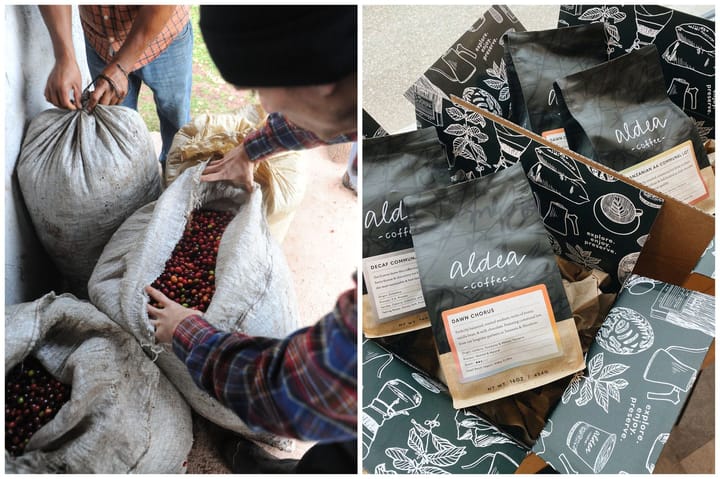
Aldea’s in-house designer, Elly Kuyt, visited Honduras in 2021 alongside the business’ co-founders. They met several farmers and asked if they would each contribute a unique pattern for Aldea’s coffee bag designs to reflect the individual farmer’s personality. One of their harvesters, Marlon Carcamo, drew inspiration from his brightly painted home and the nutty notes of his favourite coffee bean.
Aldea also celebrates Honduran culture inside their cafes with Lenca pottery displays, a traditional art form from the region. Small touches like these forge a connection between Michiganders enjoying their coffee and the people who have grown it.
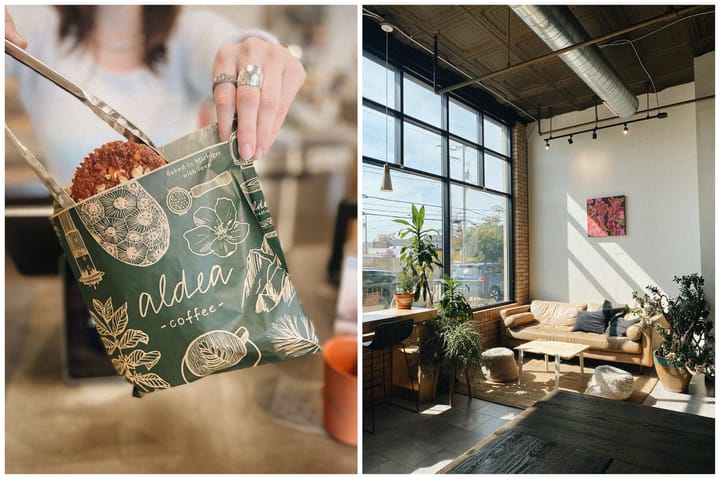
Wonder Valley
Olive oil has spiralled in popularity since the Mediterranean diet was hailed as the secret to a long-lasting life. The elixir, once deemed ‘liquid gold’ by the Romans, has become a modern-day indulgence, as at-home chefs seek it in its purest and most undiluted form. Wonder Valley is harnessing the Golden State of California – the only area in the US capable of growing olives – to produce olive oil.
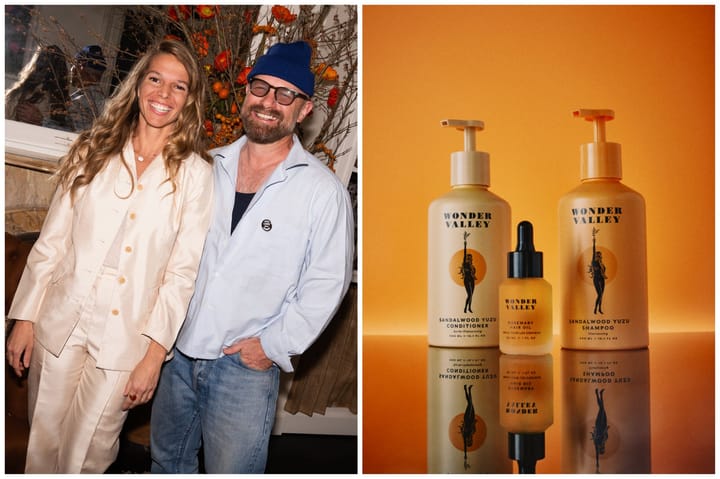
Husband-and-wife duo Jay and Alison Carroll started bottling Californian sunshine in 2014. Alison was working for the California Olive Oil Council at the time, which sounds like pretty good credentials for starting an olive oil business. She persuaded her husband to join, and thanks to his branding skills, they have been running successfully ever since.
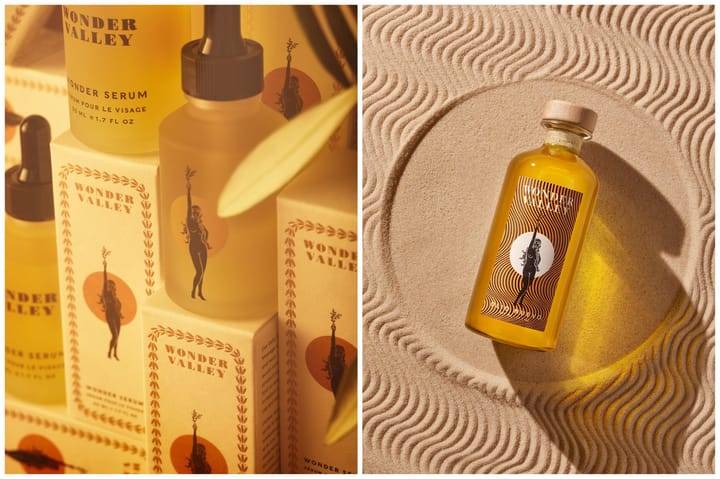
Wonder Valley was born with the aim of “getting people excited about the incredible quality of California olive oil”, says Alison. Wonder Valley now harnesses the power of olive oil in their hair and body care collections and are working with hotels on amenities.
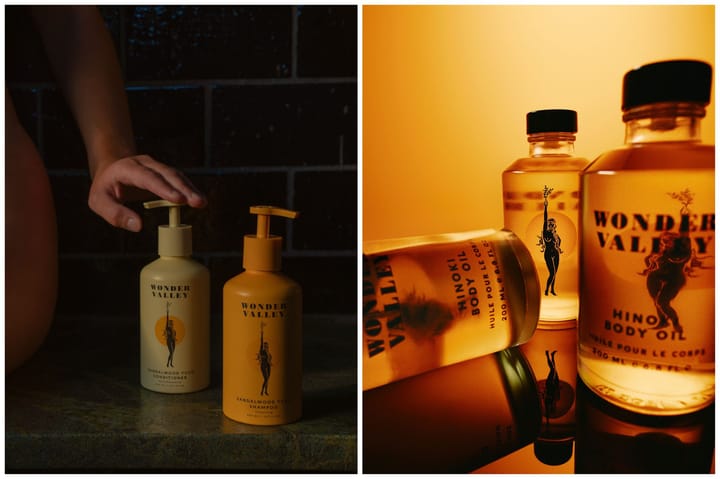
These days its core mission is to help customers take joy from life’s everyday moments. Or, as Alison calls it: “Grandeur in simplified living; taking the foundational parts of your day – cooking, washing your face, moisturizing, taking a shower – and make these moments sublime.”
Small business stories that stick
Some of the small businesses profiled here can proudly say they have been in business for over a decade. A milestone that fewer than 10% of startups are expected to reach. Longstanding brands like these ones are built off the back of hard work and attention to detail. That means never cutting corners and committing to doing everything to the highest possible standard.
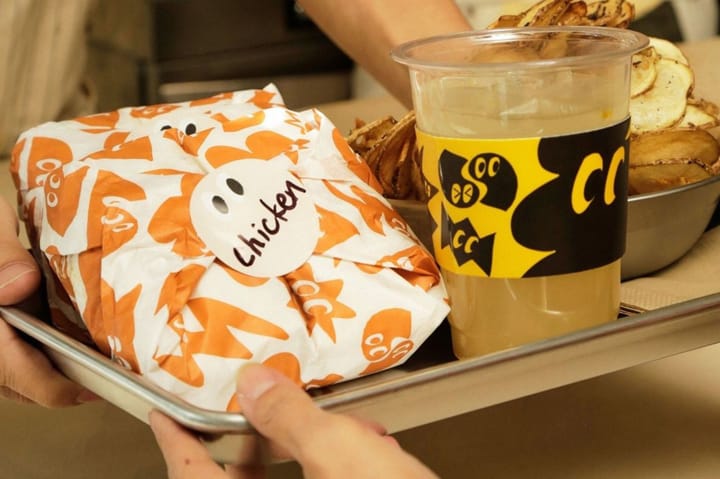
These companies embrace packaging as an extension of their brands and an opportunity to connect with their customers. “It’s not just wrapping — the texture, illustrations, and paper quality all help tell our story,” says Hisashi Murakami from Taku Sando, adding, “Customers really notice the details, and those small touches create a deeper emotional connection.”
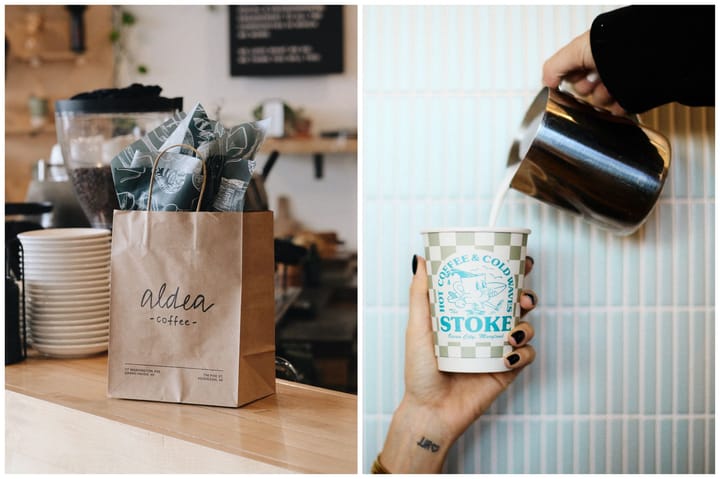
Meanwhile Aldea Coffee says its packaging has been “really impactful in helping to tell our story,” allowing it, for example, to embody its environmental mission with fully recyclable coffee bags. The Stoke Cafe in Ocean City says, “Having custom cups, boxes, and bags that reflect our brand makes every interaction feel intentional.”
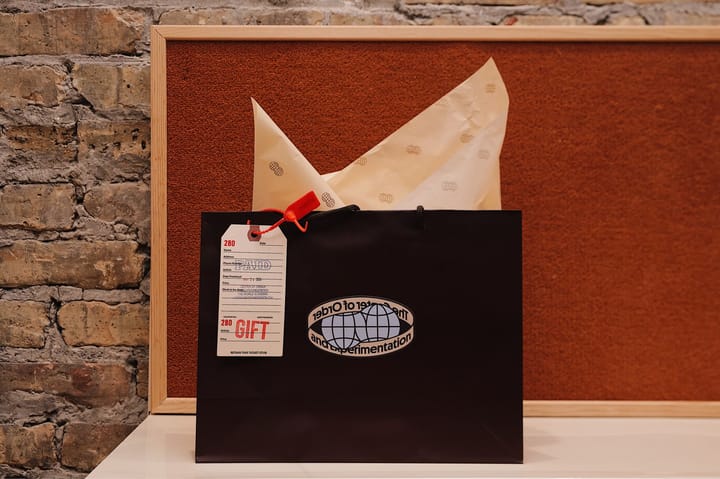
While The Center of Order and Experimentation recently told noissue that customers find their bags so unique that they don’t even want to open them. Clearly, packaging stirs a response in us that is emotional and instinctive. It acts like a canvas to paint your story onto. Stories to spark desires, memories, and a sense of belonging.